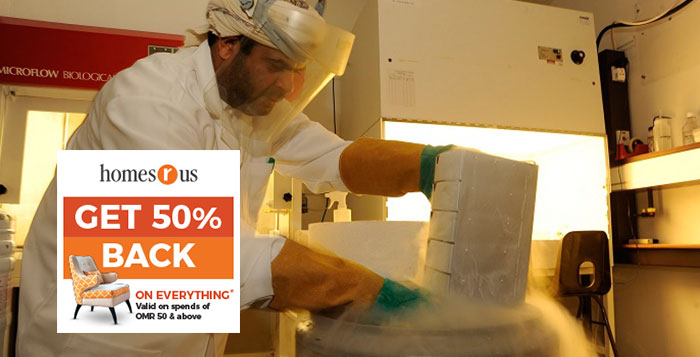
Muscat: To protect people involved in medical waste processing from falling sick, new research in Oman is exploring possible uses of technology in waste handling and treatment.
The research is led by Dr Mohammed Khalefa Sarrab, a researcher and the deputy director of communications and information research at Sultan Qaboos University. Sarrab’s research proposes using an internet of things (IoT) model to manage and treat medical waste.
“The IoT technologies solve the problem associated with sensing, measurement and collection of medical waste data and is also used to avoid human intervention,” he said.
“The COVID-19 pandemic has showed how crucial it is to come up with smart applications that contribute to the reduction of human interference with regard to waste treatment, due to the severity of the danger it poses to those in charge at hospitals, including doctors and other medical staff and auxiliary personnel.”
The project is being jointly run by SQU and Oman Environmental Services Holding Company (be’ah), to provide a smart medical waste management system with advanced technology that make medical waste processing safe, secure, and efficient, whether collected from research labs or home care patients.
Titled “Smart Medical Waste Management”, Sarrab’s project developed a smart trolley to monitor the waste generated in real-time at temporary medical waste storage units, as well as a system to track the entire waste management process.
His team also developed a mobile app to track waste collection from various healthcare organisations. “Through the use of this technology, officials will be able to create a real and accurate database on medical waste, whether in terms of quantity, or even in terms of type,” said Sarrab.
The Internet of Things is defined as a “global infrastructure for the information society, enabling advanced services by interconnecting physical and virtual things based on existing and evolving interoperable information and communication technologies,” according to the United Nations International Telecommunications Union.
Through the exploitation of identification, data capture, processing and communication capabilities, the IoT makes full use of things to offer services to all kinds of applications, whilst ensuring that security and privacy requirements are fulfilled.
From a broader perspective, the IoT can be perceived as a vision with technological and societal implications.